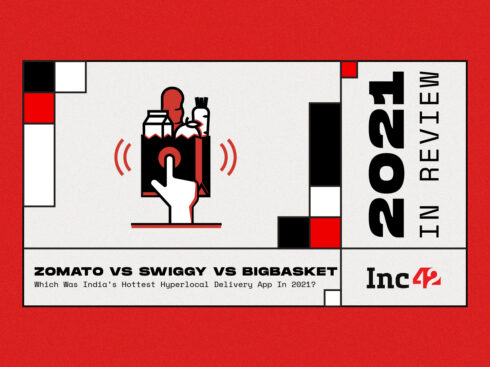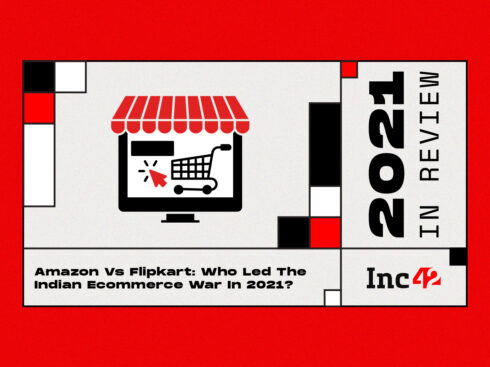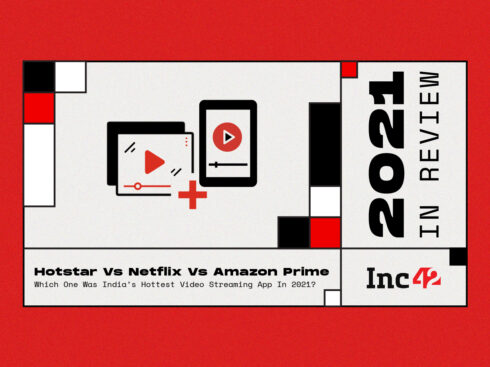SUMMARY
Between 2015 to H1 2019 a total of $1.77 Bn was poured into the healthtech startup sector
India's Draft Policy for Online Pharmacy regulations raises concerns for the sector with the advent of licensing
Improvement in healthcare access quotient for China was 2X higher than India (1990-2016)
A shift in what constitutes good governance around the world is evident from being focused towards economic development to human development — The Social Development Goals (SDG) which came into force on January 2016. It talks intensively about the social development of the people in an economy, making the availability of quality and affordable healthcare around the world a basic necessity.
Measures to make the public healthcare system in India more affordable and accessible are being taken by the Indian government as well. The launch of Ayushman Bharat — the government’s flagship public healthcare program which aims to provide insurance coverage up to INR 5 lakh (or $ 7,290) per family, for secondary and tertiary healthcare expenses was a perfect example of leveraging technology in order to make healthcare services more efficient in India.
The optimism towards successful “digital-implementation” of the scheme can be interpreted from the fact that the government claims to provide “cashless and paperless access to services for the beneficiary at the point of service”.
Despite these positive statements, the past records of the Indian government’s digital implementation of public welfare schemes have been poor and hence Ayushman Bharat having a significant impact looks doubtful at the moment.
In case, those in power get time to introspect on past failures, it won’t be difficult for them to figure out that the secret to a successful transition of Indian healthcare to a digital ecosystem can only be possible with a public-private partnership between healthtech companies and the government.
Instead, the Indian government has doubled down on licensing and regulatory approvals for healthtech startups such as epharmacies, which threaten to increase the entry barrier, stifle innovation in epharmacies as well as limit the ability of startups to introduce new business and revenue models.
State of Indian Healthtech Startup Ecosystem
Looking at the macro trends, which in this case, are the total value of funding amount and deal count in Indian healthtech startups, we can say that the growth of the healthtech sector is moderate. With the base year of 2015, the growth of funding amount and deal count in the Indian healthtech startup sector has been 17% and 5% respectively. This is higher than the average growth rate for startup sectors in India for funding amount (9%) and deal count (4%).
The Epharmacy Clampdown And The Market Shock
In December 2018, a notice banning the online sale of medicines was issued by the Madras High Court, and a few days later a similar order was carried out by the Delhi High Court as well. This brought a cloud of uncertainty over the sector.
As per DataLabs by Inc42 estimates, the total capital invested in startups operating in the epharma space between 2015 to H1 2019 is $361 Mn. The total capital inflow in the online pharmacy startups combined makes up around 20% of the total capital invested in the healthtech startup sector of India ($1.77 Bn) in the same time period.
The re-elected BJP government is quite proactive about clearing up the policy uncertainty surrounding the online pharmacy market. As per a media report, the draft of the bill regulating this market states, “Any person who intends to conduct the business of e-pharmacy shall apply for the grant of registration to the Central Licensing Authority in Form 18AA through the online portal of the central government”.
After analysing the Draft Bill, we can conclude that although it is trying to establish a strict quality control protocol with clauses such as “periodic inspection of e-pharmacy”, it is also increasing the entry barrier for new ventures in this space, considering that the nature of the draft bill reflects the possibility of bureaucratic red-tapism which was prevalent during the infamous License Raj pre-1991 where a permit was required to set up any formal business in the country.
In addition to increasing the entry barriers for new ventures in the online pharmacy space, this bill has also made the operations of this business even more complicated with increased compliance.
The added compliance factor in the industry will increase the legal spending for epharma startups, thereby adding up to the overall operational cost. The negative impact of this can be seen in the decreasing investor confidence towards the overall healthtech startup sector— the count of funding deals poured into healthtech at seed stage had plunged by a whopping 63% from 90 recorded deals in 2017 to 33 in 2018. This was accompanied by only a moderate surge in growth stage deals of 20%. On the other hand, the count of late stage deals doubled from 5 in 2017 to 10 in 2018, which was primarily into established online pharmacies such as Netmeds, 1Mg and Pharmeasy. This is an indication of investor confidence being skewed towards late-stage startups in comparison to early and growth stage in the healthtech startup sector.
Why tech is important for the overall healthcare system in India
The state of the public healthcare system in India is such that— as per the Healthcare Access and Quality Index(HAQ) 2016, India was ranked 145 (out of 195 countries) with a score of 41.2. Surprisingly India despite having a GDP size ten times bigger than Bangladesh and thousand times bigger than Bhutan ranked below them.
Provided the index takes into consideration the quality and the degree of accessibility of public healthcare in countries, In comparison to China which is an economy comparable with India in terms of population size recorded an improvement in the HAQ score (1990-2016) of 2X in comparison to both India (16.5) and the global average (16.8).
As per this study, the disparity in healthcare quality was quite high between the top performer states(Kerala, Goa) and the worst performers( Assam, Uttar Pradesh). Also, the difference in the score had increased by 31.62% from 23.4 (1990) to 30.8 (2016).
This can be attributed to the fact that the reach of quality medical care in poor states like Uttar Pradesh, Assam, Bihar etc. is very poor. In order to bridge this gap, a fusion of healthcare and technology is required which can only be fulfilled by enabling a favourable market environment for health tech startups.
As per the Future Health Index by Phillips, medical professionals who used Digital Health Records(DHRs) witnessed, 69% in quality of the care and 59% improvement in overall quality of the outcome for patients. This is one small indication of the benefit which a perfectly crafted merger of healthcare and technology can have on the overall healthcare experience for the patient. Provided the government wants to implement a digital infrastructure to support the Ayushman Bharat program, a more open market policy for healthtech sub-sectors would be more beneficial compared to increased regressive policies.



























